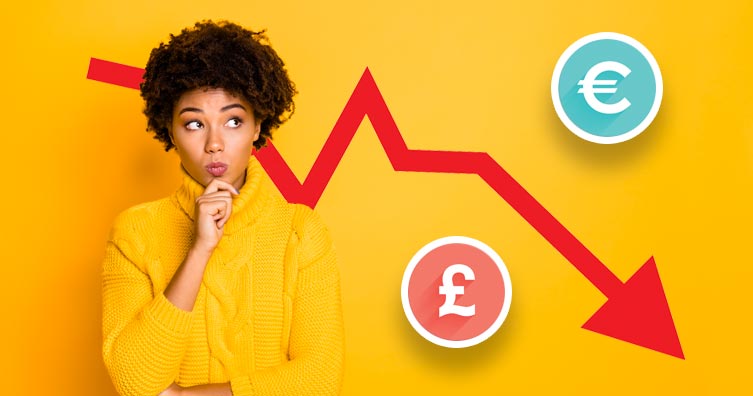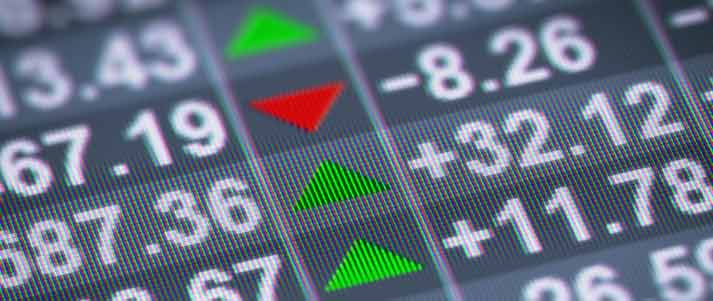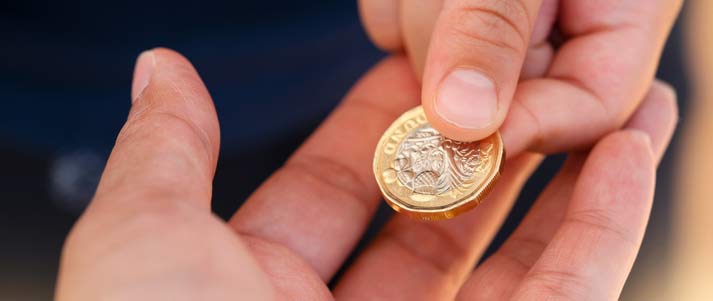Is forex trading legit?
If you've seen any videos online promoting forex, you may wonder if it sounds too good to be true. In this guide, we'll explain what forex trading is and what scams to look out for.

Credit: Roman Samborskyi, Yurlick, Stefan Balaz – Shutterstock
If you're on social media, you may have come across some videos promoting forex trading as a way to earn money. And while investing can potentially be a way to grow your money, it's never without risk – especially if you're not clued up on what it is you're investing in.
"Influencers" on social media may make it seem like forex trading is an easy way to get rich quickly. However, this isn't the case. It's a risky form of investing, and sadly, there are scammers out there trying to profit off people who don't have all the necessary information.
Below, we'll explain what forex trading is, what common scams to look out for and some alternative ways to make money that are much safer.
What's in this guide?
What is forex trading?
Forex stands for Foreign Exchange. It's the global market for buying and selling different currencies.
When people talk about forex trading, they refer to buying currencies and selling them for a profit when the value changes.
If you've ever bought foreign currencies for a holiday, you'll know that the value of currencies changes all the time. Just look at the exchange office at the airport – the prices change daily.
When looking at the value of a currency in forex trading, you focus on currency pairs. This means you'll look at two currencies and their value in relation to one another. For example, you can see how much the British Pound is worth in relation to the American Dollar (GBP/USD).
The goal is to predict whether the currency will go up in value against the other currency. For example, if the GBP/USD is trading at 1.24, it means that you can buy $1.24 with £1.00. If the value goes up to 1.25 and you sell your original $1.24, you can keep the $0.10 extra as profit.
Obviously, $0.10 isn't a lot in this example. But if you trade with bigger volumes, the potential profits (and losses) increase too.
The value of a certain currency depends on many different factors, such as political events, interest rates, tourism, environmental impacts and more. But remember that the price can drop just as quickly. This makes forex trading one of the riskier forms of investing, as the prices fluctuate rapidly and unpredictably.
Is forex trading legal in the UK?

Credit: Pavel Ignatov – Shutterstock
Yes, forex trading is completely legal in the UK. It's overseen by the Financial Conduct Authority (FCA). The forex market is one of the biggest financial markets in the world – governments and banks also participate in it, not just individual investors.
The issue lies that even though the market is regulated, there are still people trying to take advantage of others who don't have enough experience or knowledge in the market. We go over some of the most common forex trading scams below.
And while forex trading is a legitimate way to invest money, it also carries a lot of risks. Even if you invest through a regulated broker, it's easy to lose money. The forex market is highly volatile, which means that the value of currencies changes very fast – both up and down.
You can quickly make a big loss when trading in forex. Day trading is a risky way to invest, even though some people on social media make it seem like an easy way to earn a lot of money (spoiler alert, it isn't!).
Is forex a scam?
As we mentioned above, forex trading is a legitimate way to invest money. Trading currencies has been done for decades, but that doesn't necessarily mean it's the right way to invest your money.
One of the pros of forex trading is that the market is open 24 hours a day (except on weekends) and the investments are very liquid. This can be attractive to potential investors.
However, the downside is that the market is incredibly volatile, making it risky to invest money this way.
With forex trading, someone wins and someone loses. As Andrew Hallam explains in his book, 'Millionaire Teacher', for each dollar made in forex trading, a dollar is lost elsewhere. This is a key way it differs from investing in stocks, where there is inherent value.
But even if forex trading in itself is legit, yet risky, there are scammers out there who use forex to trick people out of money. See the next section, where we explain some of the most common scams and how to watch out for them.
Forex trading scams on social media

Credit: Mehaniq – Shutterstock
One common way for young people and students to be targeted by forex scams is through social media.
Some people on TikTok and Instagram make it seem like turning £100 into £10,000 with forex is easy and guaranteed, and this is where things get dangerous. If it sounds too good to be true, it almost always is.
Beware of people on social media who claim they can help you become a millionaire through forex trading. Often, the way these people earn money is by promoting trading services, courses and memberships. The chances are they make more money promoting these services than with forex trading itself.
Scammers might target people who don't have enough knowledge of the industry and those who are in a vulnerable position. If you're on a student budget and struggle to pay rent, the promise of an easy and effortless way to earn money can be tempting, but be careful to avoid potential scams.
Do lots of research before investing any money and consider the lower-risk alternatives.
Other common forex trading scams and how to spot them
Here are some other common forex trading scams to look out for:
- Unregulated brokers – If you decide you'd like to try forex trading, make sure you only do this through an FCA-regulated broker. Read reviews before signing up and make sure the broker you're dealing with is legit.
- Guarantees – Nobody can guarantee you any profits when it comes to investing. If someone is telling you where and how to invest in forex by promising you guaranteed returns, it's almost always a scam.
- Money requests – If someone asks you to send them money (or cryptocurrencies) to start investing in forex, stay clear. Especially if they're pressuring you with time limits, there's a risk you won't see your money again.
- Downloading apps – Before downloading any apps for forex trading, make sure you read reviews to verify it's a legit app. Never click a link someone sends you on social media to download something, as these may be used to break into your device and access your data.
Forex trading alternatives

Credit: Ann in the uk – Shutterstock
Here are lower-risk alternatives to forex trading:
- Savings account – Instead of putting your money into investments, you could put it in one of the best savings accounts. This is generally a low-risk way to earn interest.
- Cash ISA or LISA – Using a Cash ISA or Lifetime ISA is another way to save money and gain interest, but these accounts allow you to do so tax-free. As we explain in our dedicated guides, there are some restrictions so do research before opening an account.
- Stocks & Shares ISA – If you're thinking about investing money in the stock market, find out how Stocks & Shares ISAs work. These investment accounts work similarly to regular broker accounts, but all your profits are tax-free.
Need money now? Check out our guide to easy ways to earn money.








